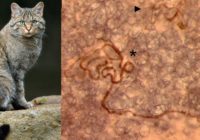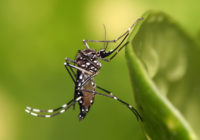BugBitten & Bizarre – some of the surprising facts we learned in 2022



A parasite that encysts in the brains of wolves in Yellowstone National Park is associated with changes in wolf behaviour that may increase their incidence of infection.

Surveillance and monitoring of the prevalence and distribution of zoonotic pathogens is crucial in improving our awareness of potential ‘spillover events’, where these pathogens can be transmitted to novel host populations, including humans and often valuable (financially or sentimentally) domesticated animals.

Krisztian Magori practices gratitude for the good news on the development of scalable, self-limiting, genetic sexing version of genetically modified mosquitoes to reduce Aedes aegypti populations, with the hope to be able to order his own batch of such mosquitoes in the near future!

International travel, trade, climate change, migration and conflict can all facilitate the spread of infectious diseases and their vectors from their ‘usual’ endemic regions to non-endemic regions. Lack of knowledge and inexperience of control measures in non-endemic countries can lead to outbreaks of diseases. Pénélope Duval and her colleagues surveyed the knowledge and practices of community gardeners in urban France to the invasive Asian Tiger mosquito – the vector of the viruses that cause dengue, Zika and other diseases.